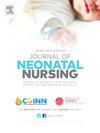Evaluation of infant feeding knowledge and practices of mothers in rural communities of Uttarakhand India: A cross-sectional study
Q2 Nursing
引用次数: 0
Abstract
Introduction
Appropriate feeding is essential for ensuring optimal growth and development of infants. More than 50 % of the infants in Uttarakhand rely on formula feeding. It ranks third in infant mortality in India due to improper feeding practices, poor hygiene, and infections. This study aims to assess the knowledge and practices of the mothers regarding infant feeding.
Methods
A cross-sectional study was conducted among mothers in Dehradun, Uttarakhand, to evaluate their knowledge and practices related to infant feeding. Data were collected using structured questionnaires and analyzed to identify key gaps in the population.
Results
Most mothers (86.40 %) had a basic understanding of infant feeding, with the highest proficiency in feeding techniques (72 %), and the lowest in general feeding knowledge (62.42 %). About 40 % of mothers comprehended the risks associated with animal milk allergies, and only 24 % were aware of the possibility of ear infections from supine bottle feeding. Besides, only 37.60 % of mothers were aware of using Bisphenol A-free feeding bottles, while 51.20 % recognized that the feeding bottles should be replaced every two to three months. Moreover, 45 % of mothers continued to practice both complementary feeding and breastfeeding beyond six months.
Conclusion
The mothers demonstrated moderate infant feeding knowledge and practices, and the key areas requiring improvement include optimal nutritional sources, benefits of exclusive breastfeeding, risks associated with formula and animal milk feeding, alternative feeding methods, and proper weaning practices. Focused education and training interventions are necessary to enhance infant feeding practices and reduce infection-related morbidities.
印度北阿坎德邦农村社区母亲对婴儿喂养知识和做法的评估:一项横断面研究
适当的喂养对确保婴儿的最佳生长发育至关重要。北阿坎德邦超过50%的婴儿依靠配方奶粉喂养。由于喂养不当、卫生条件差和感染,它的婴儿死亡率在印度排名第三。本研究旨在评估母亲在婴儿喂养方面的知识和做法。方法对北阿坎德邦德拉敦的母亲进行了横断面调查,以评估她们对婴儿喂养的相关知识和做法。使用结构化问卷收集数据并进行分析,以确定人口中的关键差距。结果大多数母亲(86.40%)对婴儿喂养有基本的了解,其中对喂养技术的熟练程度最高(72%),对一般喂养知识的熟练程度最低(62.42%)。大约40%的母亲了解与动物奶过敏相关的风险,只有24%的母亲意识到仰卧奶瓶喂养可能导致耳部感染。此外,只有37.60%的母亲知道使用不含双酚a的奶瓶,而51.20%的母亲认识到每两到三个月更换一次奶瓶。此外,45%的母亲在6个月以上继续进行补充喂养和母乳喂养。结论这些母亲具有适度的婴儿喂养知识和做法,需要改进的关键领域包括最佳营养来源、纯母乳喂养的益处、配方奶和动物奶喂养的相关风险、替代喂养方法和正确的断奶做法。有重点的教育和培训干预措施对于加强婴儿喂养做法和减少感染相关发病率是必要的。
本文章由计算机程序翻译,如有差异,请以英文原文为准。
求助全文
约1分钟内获得全文
求助全文
来源期刊

Journal of Neonatal Nursing
Nursing-Pediatrics
CiteScore
2.00
自引率
0.00%
发文量
143
期刊介绍:
Aims & Scope: This is the practical, bimonthly, research-based journal for all professionals concerned with the care of neonates and their families, both in hospital and the community. It aims to support the development of the essential practice, management, education and health promotion skills required by these professionals. The JNN will provide a forum for the exchange of ideas and information between the range of professionals working in this field; promote cooperation between these professionals; facilitate partnership care with families; provide information and informed opinion; promote innovation and change in the care of neonates and their families; and provide an education resource for this important rapidly developing field.
 求助内容:
求助内容: 应助结果提醒方式:
应助结果提醒方式:


